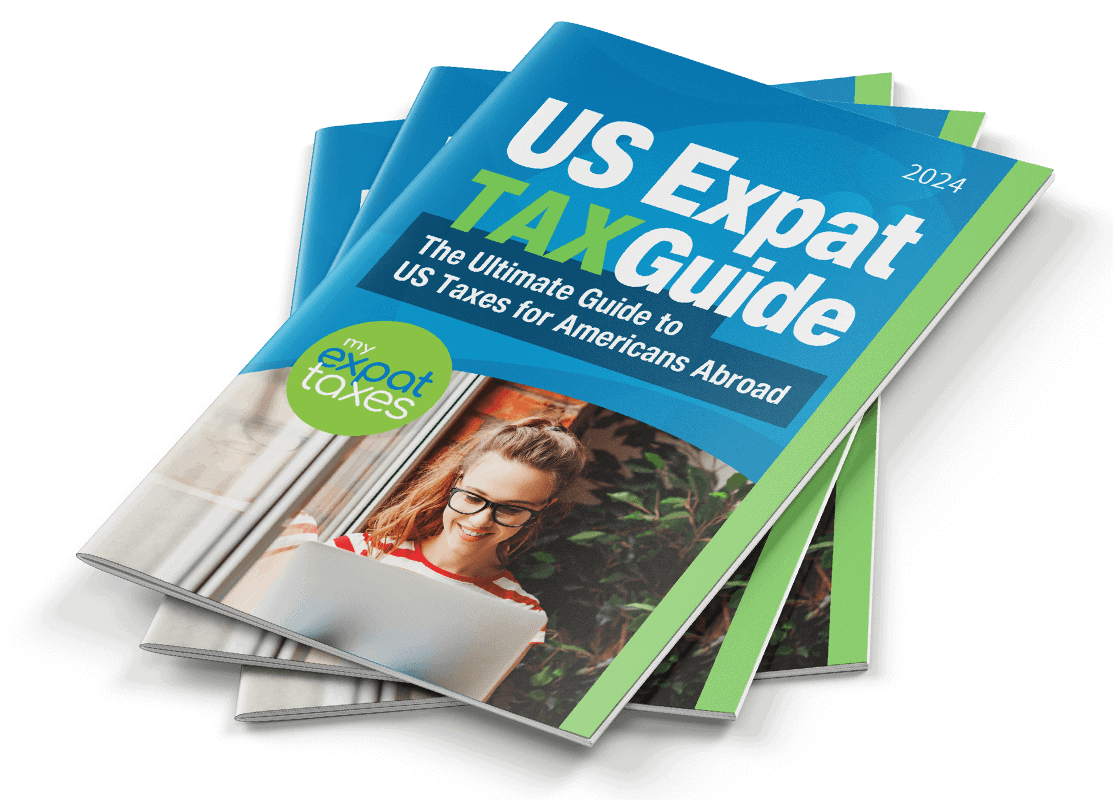US Expats Tax Basics
November 14, 2024 | ExpatTaxGuide | 3 minute read
Expat Tax Guide | Everything you need to know about filing taxes abroad in 2025
 Verified by IRS Enrolled Agents and CPAs
Verified by IRS Enrolled Agents and CPAs
It’s 2025, and that means the US tax season is in full swing. We at MyExpatTaxes want to ensure that you, as an American abroad (expat), are in the know about your US taxes. Knowing what to expect and when to act will save you money and time.
This guide’s goal is to help you become (and stay) tax-compliant! We know no one likes filing a tax return, but at least we can make the process as painless as possible!
Who Needs to File US Taxes in 2025?
- US citizens (living in the US or abroad), including Accidental Americans
- Green Card holders
- Permanent Resident / Resident Aliens of the USA
- Non-Resident Aliens who have US income
You are currently viewing a placeholder content from YouTube. To access the actual content, click the button below. Please note that doing so will share data with third-party providers.
More InformationAre you an Accidental American?
You may be an Accidental American and file US taxes if you were or are in the following situations:
- Born in the US to foreign parents
- Born outside the US to American parents who were unaware of their status as US citizens and claimed US citizenship for you.
- Born abroad to at least one US citizen parent who claimed citizenship for you.
- Obtained a US birth certification or citizenship around the time of your birth, even if you have been living abroad more than in the US
If you fall within any of the above points, you are a US citizen abroad and may be obligated to file and pay US taxes. Keep reading to learn the rest of the US Expat tax basics you’ll need to know as an accidental American.
Your Tax Profile
As a US citizen abroad, you may or may not need to file US expat taxes if you meet a certain tax threshold. Your tax threshold is based on your status and your gross income. Starting with your martial status, determine which profile best suits your current position.
Pick Your Filing Profile:
Single:
Not married (to a US Citizen or non-US Citizen), and filing by yourself.
Married Filing Jointly:
Legally married (including common law), and your spouse files US taxes with you using either an SSN or ITIN
Married Filing Separately:
Married, however, not filing with your spouse (i.e., they are a non-US Citizen and don’t want to file US taxes)
Head of Household:
You are considered unmarried* and responsible for paying more than half in maintaining your household during the tax year (including paying more than half for rent/mortgage, groceries, household bills, repairs, etc.).
You must also have a qualifying child or dependent, who is either your biological or adopted child, and the child has lived with you for more than six months during the tax year, etc.
*You would still qualify as unmarried under this requirement if your spouse is a Non-Resident Alien (NRA).
Qualifying Widower:
You have a dependent child and retain the benefits from the Married Filing Jointly status for two years after your spouse, who you usually filed jointly with, passed away.
Check Your Gross Income:
Gross income usually is the total pay of what you gained from your employer (salary or wages) before taxes and other deductions. Your gross pay includes all other compensation sources such as business income, pensions, dividends, interest, rental income, etc.
Once you know your tax profile and gross income, check if you need to file.
US Tax Filing Thresholds for your 2024 Tax Return
As an American abroad, you must file a 2024 federal tax return in 2025 if you are:
Single:
- Under 65, and the gross income is at least $14,600
- Over 65, and gross income was at least $16,550
Married Filing Jointly:
- Under 65 (both spouses), and gross income was at least $29,200
- 65 or older (one spouse), and gross income was at least $30,750
- 65 or older (both spouses), and gross income was at least $32,300
Married Filing Separately:
- at any age, and gross income was at least $5 (yes, five US dollars – no typo here)
- Please note the STANDARD DEDUCTION though, is the same as for Single above even though the Filing Threshold is lower.
Head of Household:
- Under 65, and gross income was at least $21,900
- 65 or older, and gross income was at least $23,850
Qualifying widow(er):
- Under 65, and gross income was at least $29,200
- 65 or older, and gross income was at least $31,150
Once you are sure you need to file US taxes, and you’re ready to start filing through our app, please collect the following materials:
- Your Social Security Number. If you memorized it and don’t have the card, that is fine, too.
- All documents with your sources of income (monthly payslips, invoices, receipts, etc.)
- Monthly statements or end-of-year statements of your bank account to see if you had over $10,000 combined from all your foreign financial accounts at any one time during the year.
Get to Know the US Tax Deadlines
April 15th: Standard US Tax Deadline
This is the most common deadline for US citizens and is also the deadline to pay any outstanding taxes owed to the IRS.
June 15th: Expat Tax Deadline
US expats receive a two-month automatic extension until June 15th. This extension does not apply to paying US taxes to the IRS.
October 15th: Extension Deadline
This deadline is important for those who cannot file by June 15th and must file an FBAR. With MyExpatTaxes, you can file extension Form 4868 and your FBAR with one platform! Making the filing process significantly more efficient.
Tax Tip: Expats must request this extension BY June 15th to avoid penalties!
December 15th: Additional Deadline for Special Tax Cases
If you cannot make the October 15th deadline, you can apply for the December 15th extension. This extension is not granted as easily; a special request must be made to the IRS via mail, and you MUST apply for it by October 15th. Otherwise, you will have penalties.
Tax Guide Topics
Search Tax Guide
Stimulus Checks for Americans Abroad in 2025
Are you an American living abroad? You might have heard about the stimulus checks handed out during COVID-19. These checks acted as a financial relief to many American families. In…
Read More ...Self-Employment Taxes for Americans Living Abroad
Self-Employment Taxes for US Expats in If you are your own boss and have control over the services you provide, you are considered self-employed, and the income earned from these…
Read More ...US Tax Support for Americans Retiring Abroad
Retired or Planning to Retire in ? If you are an expat planning your retirement, you need to know that Americans in the US and abroad can gain retiree support…
Read More ...Expat Tax Benefits for Americans Living Abroad
Avoid Double Taxation from These Expat Tax Benefits Double taxation happens when you have to pay taxes on the same income twice. For example, you could be working as a…
Read More ...Getting Help with Unfiled Tax Returns as US Expat
Have you missed more than a few tax returns since moving abroad? If so, you’ll have a stack of unfiled returns that require your attention. Let’s say you forgot or…
Read More ...Renouncing Your US Citizenship as an American Abroad
While it’s possible to renounce your US citizenship, it is a deeply personal decision, and it’s important to consider the potential impact carefully. After renouncing, you may face challenges finding…
Read More ...




